The views expressed in our content reflect individual perspectives and do not represent the authoritative views of the Baha'i Faith.
Think back for a moment, and try to remember—when was the last time you did something shameful?
Shame, the dictionary says, is a painful feeling of humiliation or distress caused by the consciousness of wrong or foolish behavior. A sense of shame also suggests understanding and respect for propriety and morality.
It may not be fashionable to say it, but shame is a bulwark of society. We are not talking here of shame based on a need to be perfect, or negative and destructive self-shaming, but the kind of constructive and informational shame which leads us to better behavior.
Every religious tradition contains a concept of shame. The Buddhist concept, for example, is called hiri:
Shame is considered to be a spiritually useful emotion—an emotion that leads to our happiness and well-being—because it realigns us with our ideals. It’s uncomfortable, but good for us. When we’ve not acted at our best, or way below our best—when we’ve hurt someone, or been untruthful, or let someone down, for example—and we then become aware that this is not how we want to behave, a painful feeling can arise. This is shame. This is us reconnecting with our deeper values. – Dealing with Guilt and Shame
If you’re not sure that you’ve felt shame, here are some synonyms: humiliation, mortification, chagrin, ignominy, embarrassment, indignity, discomfort. If you peruse these synonyms, you’ll find what shame results in as much as what it is. For shame is a feeling first and foremost, an unconscious, yet rational feeling in response to some action or inaction on our part, that causes us to feel discomfort and downright distress for what we’ve done or failed to do.
The Baha’i teachings describe shame this way:
Verily I say: The fear of God hath ever been a sure defence and a safe stronghold for all the peoples of the world. It is the chief cause of the protection of mankind, and the supreme instrument for its preservation. Indeed, there existeth in man a faculty which deterreth him from, and guardeth him against, whatever is unworthy and unseemly, and which is known as his sense of shame. – Baha’u’llah, Tablets of Baha’u’llah, p. 57.
The Baha’i teachings say that “… man should know his own self and recognize that which leadeth unto loftiness or lowliness, glory or abasement, wealth or poverty.” – Baha’u’llah, Tablets of Baha’u’llah, p. 34. That self-knowledge inevitably points us away from shameful thoughts and actions, and towards thought and actions that lead us to loftiness and glory.
So if you’ve felt shameful about something you’ve thought, said or done, count yourself lucky—that feeling means you have an essentially kind and spiritual soul, one with a good moral compass and a sense of regard for how others feel.
For example, At the Riverview Complex traffic light on Route 29 on my way home from Trenton, there is always a bedraggled-looking person at the corner asking for money. Right or wrong, I feel a bit of shame mixed with regret, especially when I rush by and give nothing. Yet even when I hand out a dollar or two, it feels downright awkward. I am embarrassed to be a “have” giving to “have-nots.”
I get this same sense when my wife and I visit Manhattan to babysit our four-year-old granddaughter, and while walking the streets, pass by most panhandlers sitting with a cup or sign in front, only stopping occasionally. Unfortunately, as any Manhattanite will tell you, it is a way of life for some of them and a business; a business with assigned routes and times. That doesn’t stop my hand from reaching into my pocket.
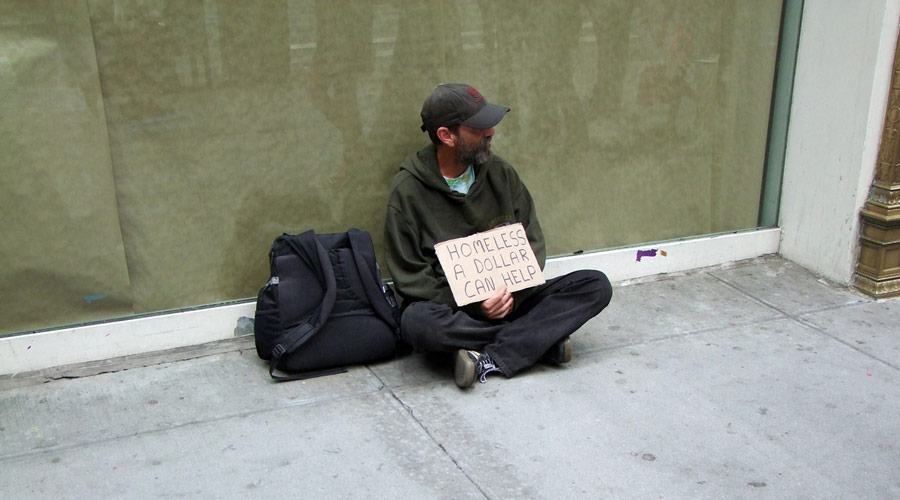
Be that as it may, embarrassment still comes over me when I do not give something.
We learned this sense of shame, embarrassment, and discomfort as children growing up. Our parents taught us a moral code, as did others like our school teachers, and that included feeling rotten when we messed up badly, especially if we hurt another person, or weren’t kind to them.
But as we know, not all human beings have a sense of shame that prevents them from hurting others. That sense of shame is evidence of a spiritual core at the heart of the person who feels it.
For a Baha’i, that healthy sense of shame, “deterreth him from, and guardeth him against, whatever is unworthy and unseemly.” I like the phrase “deterreth and guardeth”—both keeping or preventing us from erring; and especially the all-inclusive word “whatever”—meaning everything and anything.
Shame—the firm knowledge and conviction that if we perform a certain way it will be shameful—is a never-failing means of always doing the right thing, by the right person, the right way.
But for some reason, not all humans possess a sense of shame. This has been called anti-social behavior, or sociopathic in the extreme, characterized by a total lack of remorse over one’s shameful actions, and a willingness to hurt others to gratify selfish needs. Society needs to protect itself from such persons, developing laws and rules that govern a civilization and its necessary rules of reciprocity and civility. Hence, the need for prisons to isolate such persons with criminal, anti-social ways away from mixed company where they may do greater harm.
How do we develop a healthy sense of shame? By recognizing the humanity in ourselves and others; by treating others the way we ourselves would want to be treated, or better; by praying for and practicing qualities such as patience, forbearance, love, understanding and kindness; and by thinking before we speak and act with others.
Actually, having a healthy sense of shame defines what it means to be human–in a world with many souls struggling for survival.
True civilization will result when we end poverty once for all.


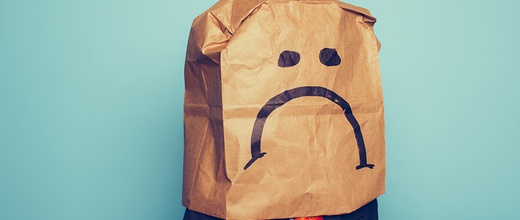


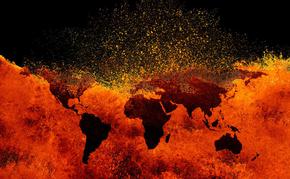
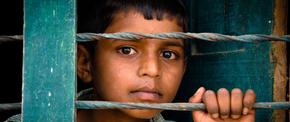
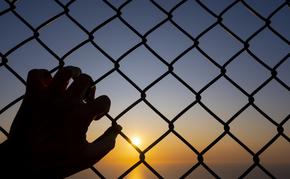









Comments
Sign in or create an account
Continue with Facebookor